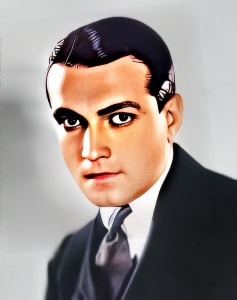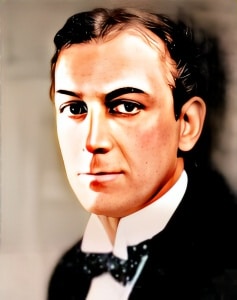 Richard Barthelmess, born on May 9, 1895, in New York City, was a prominent actor of the silent and early sound film eras.
Richard Barthelmess, born on May 9, 1895, in New York City, was a prominent actor of the silent and early sound film eras.
His career spanned several decades, and he left an indelible mark on the history of cinema. Known for his exceptional acting abilities and versatility, Barthelmess contributed to some of the most iconic films in the early years of Hollywood.
In the early 20th century, silent films dominated the entertainment industry, relying on visual storytelling and nonverbal acting to convey emotions and narratives. Richard Barthelmess was a natural fit for this medium, with the ability to convey a wide range of emotions primarily through facial expressions and physical acting.
One of Barthelmess’s breakthrough roles came in the silent drama “Tol’able David” (1921), directed by Henry King. The film is celebrated for its portrayal of rural life and a young man’s coming of age in the face of adversity. Barthelmess’s portrayal of David Kinemon, a timid youth who matures into a courageous hero, was met with critical acclaim.
Barthelmess’s partnership with director Henry King was a defining aspect of his career, and the success of “Tol’able David” established him as a prominent actor of the silent era. Their collaboration continued with films like “The Seventh Day” (1922) and “Fury” (1923).
Barthelmess also worked with director D.W. Griffith, a pioneering figure in early cinema, on the film “ Broken Blossoms” (1919). His portrayal of Cheng Huan, a gentle Chinese man who falls in love with an abused young woman, showcased his ability to engage with complex and emotionally charged characters.
The transition to sound films marked a significant shift in the film industry, challenging many silent film actors to adapt to this new era. Richard Barthelmess made a successful transition, underscoring his adaptability and commitment to his craft.
One of his notable sound films was “The Dawn Patrol” (1930), directed by Howard Hawks, which depicted the lives of World War I pilots. Barthelmess’s performance added depth to the film’s narrative and contributed to its success.
Richard Barthelmess’s acting abilities were not confined to a single genre; he worked in various film genres, including dramas, comedies, and adventures. His filmography showcased his versatility as an actor and his dedication to his craft.
In conclusion, Richard Barthelmess was a versatile and celebrated actor in the early years of American cinema. His career spanned the transition from silent films to sound films, during which he showcased his adaptability and versatility as an actor. While his name may not be as widely recognized today as some of the leading actors of his time, his performances and contributions to the history of cinema remain a valuable part of the rich legacy of early Hollywood. Barthelmess’s talent, memorable roles, and enduring impact on film history make him a remarkable figure in the early days of Hollywood.




